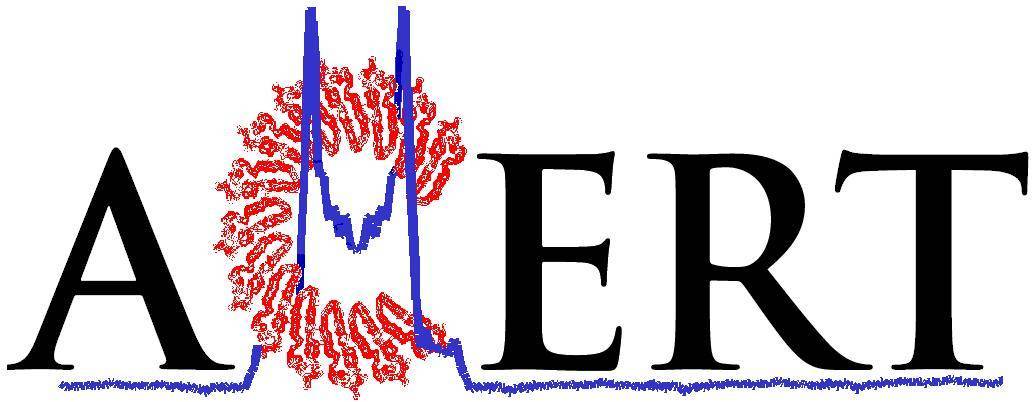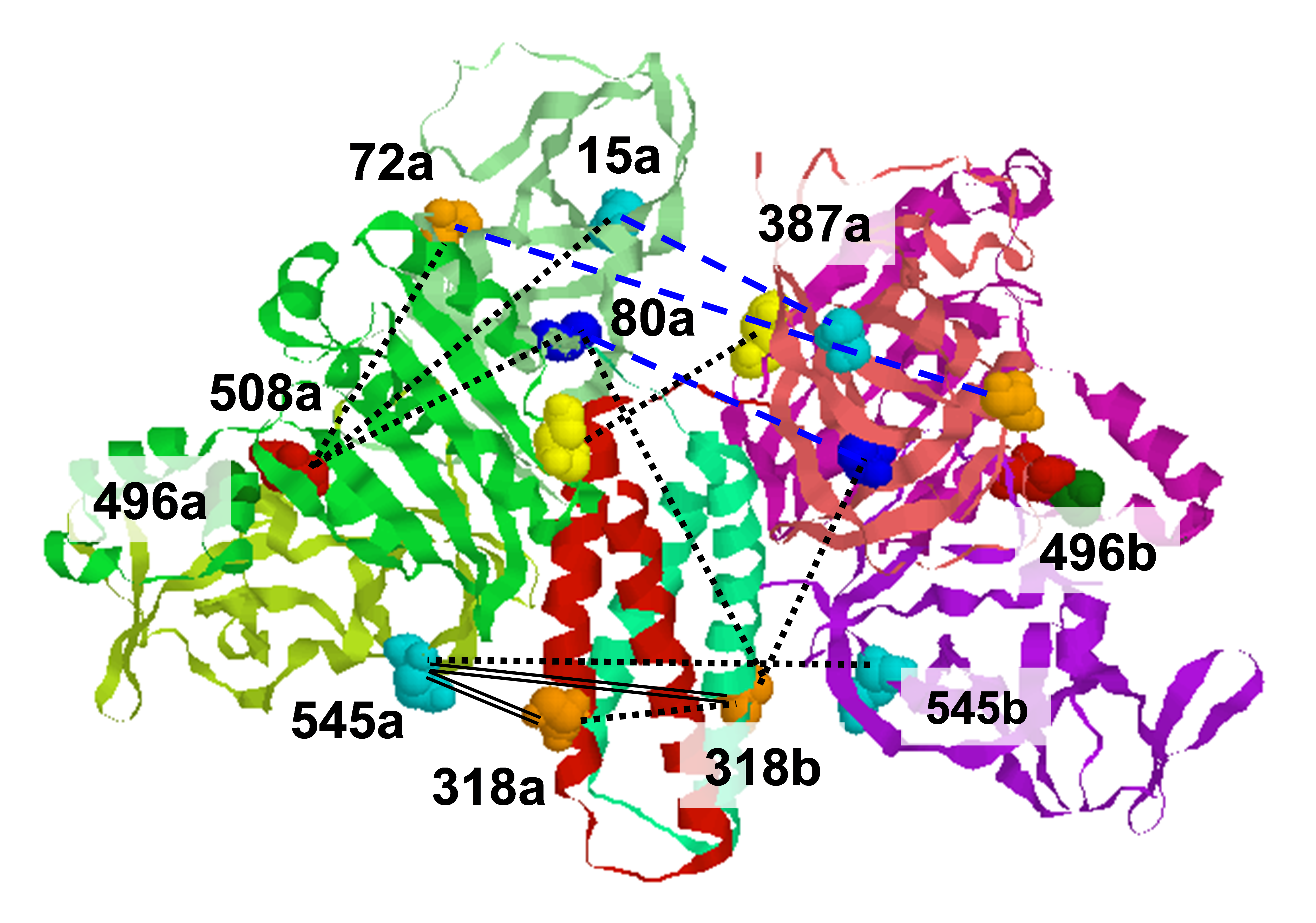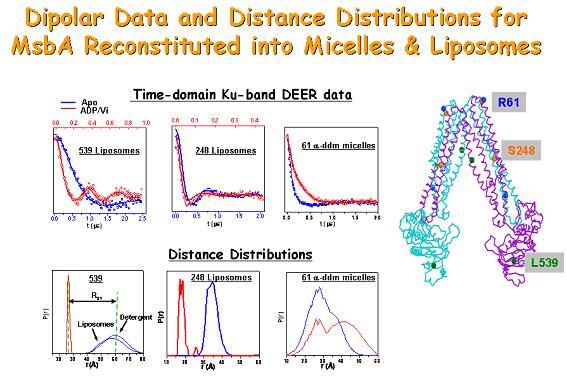.svg) National Institute of General Medical Sciences |
 |
 |
National Biomedical Resource for |
| ACERT's Service and Collaborative Projects | |
Clinical multidrug resistance in the treatment of bacterial and fungal infections and cancer chemotherapy can result from the expression of pumps that extrude toxic molecules from the cell. A subclass of these pumps—ATP-binding cassette (ABC) transporters—use energy from ATP to remove a wide range of molecules. MsbA is a conserved ABC transporter from Gram-negative bacteria with sequence similarity to human multi-drug ABC transporters. MsbA flips the building block of the outer membrane, lipid A, across the inner membrane. The input of ATP energy occurs in two dedicated nucleotide-binding domains (NBDs), whose configuration in intact transporters is controversial. We determined the amplitude of MsbA conformational motion that couples energy expenditure to substrate movement across the membrane. Using pulsed dipolar ESR and nitroxide spin-label probes introduced into the protein sequence, we found that ATP hydrolysis fuels a relative motion of the NBDs yielding close to a 30Å change (cf. Figure). The movement of the NBDs is coupled to reorientation of the chamber, which binds the lipid substrate from cytoplasmic-facing to extracellular-facing through large amplitude motion on either side of the transporters. In addition to revealing the structural mechanics of transport, these results challenge the earlier models deduced from studies of substrate-specific ABC importers that envisions the two NBDs in contact throughout the ATP hydrolysis cycle. Publication: P.P. Borbat, K. Surendhran, M. Bortolus, P. Zou, J.H. Freed, and H.S. Mchaourab, PLoS Biol., 5, 2211-2219 (2007); PMC2001213 |
|
 |
|
|
Peter P. Borbat, Jack H. Freed, (ACERT) Kavitha Surendhran, Marco Bortolus, Ping Zou, Hassane S. Mchaourab (Department of Molecular Physiology and Biophysics, Vanderbilt University Medical Center, Nashville, Tennessee) |
|
|
|
About ACERT Contact Us |
Research |
Outreach |
ACERT is supported by grant 1R24GM146107 from the National Institute of General Medical Sciences (NIGMS), part of the National Institutes of Health. |
|||||
| ||||||||